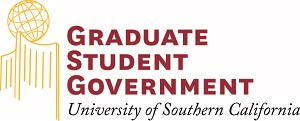Plexon
Plexon is a pioneer and leading innovator of custom high performance solutions for data acquisition, behavioral research and advanced analysis specifically designed for neuroscience research. Plexon's equipment and solutions lay the foundation for work performed around the globe in fields such as basic science, Brain-Machine Interfaces (BMI), neurodegenerative diseases, addictive behaviors and neuroprosthetics. Founded in 1983 in Dallas, Texas by Harvey Wiggins, Plexon has grown rapidly to a full team of innovative engineers, biophysicists and neuroscientists with highly specialized expertise focused entirely on neuroscience
research.
Alfred E. Mann Institute
The Alfred E. Mann Institute for Biomedical Engineering at the University of Southern California (AMI-USC) is a non-profit organization that supports research, development and commercialization of biomedical devices and other technologies. The Institute provides philanthropic support for biomedical device development that can significantly impact healthcare. AMI is an incubation center devoted to accelerating the commercialization of biomedical devices by nurturing promising biomedical technologies.
Mathworks
Mathworks is a worldwide leader in the development of technical computing software for engineers and scientists, including their widely-circulated MATLAB and Simulink products. Their products are a fundamental component of research and development in both academia and industry, and Mathworks-based platforms span fields including bioinformatics, image processing, biochemical modeling, and biostatistics.
USC Graduate Student Government
The GSG mission is to enhance the University of Southern California graduate and professional student experience by serving as the face of the student body. To accomplish this, GSG is responsible for managing student resources efficiently, providing a voice for the student community, building a community that fosters interdisciplinary exchanges, and informing students about their rights, resources, and opportunities.

Amgen
Amgen is one of the world’s leading biotechnology companies. Amgen is a values-based company, deeply rooted in science and innovation to transform new ideas and discoveries into medicines for patients with serious illnesses.
Coulter Foundation
The Wallace H. Coulter Foundation was established in 1998 by its benefactor, Wallace Coulter, founder and Chairman of Coulter Corporation. The Foundation continues Wallace’s practice of providing risk capital for innovative initiatives through its grant programs. The largest of these promotes academic translational research based in biomedical engineering. By implementing industry best practices, this process accelerates the translation of promising technologies into practical advances that improve patient care. The Foundation also collaborates with leading medical societies to bring the latest education and standards of care to resource-limited countries. Finally, working with Asian American organizations, the Foundation is building a consortium that establishes one cohesive community to promote collaboration and partnership.
ThorLabs
Thorlabs specializes in the building blocks for laser and fiber optic systems. From optomechanical components to telecom test instrumentation, Thorlabs' extensive manufacturing capabilities allow us to ship high quality, well priced components and devices for next-day delivery. Optomechanics, optics, opto-electronics, laser diodes, fiber optics and ASE test sources as well as fiber optic amplifiers.

Abbvie
AbbVie, formerly a part of Abbot Laboratories, is a global leader in the world in biopharmaceuticals with a patient-centered ideology at its core. From this perspective, AbbVie seeks to innovate therapies and meet the health needs of people throughout the globe, not only performing research and delivering healthcare but supporting education, practicing ethical studies, and reducing its impact on the environment. The research focuses of AbbVie include hepatitis C, neuroscience, immunology, oncology, renal disease, and women’s health.

Biomimetic MicroElectronic Systems
NSF Engineering Research Center for Biomimetic MicroElectronic Systems (BMES) was established in September 2003 with funding from the National Science Foundation. Our vision is to develop the science and engineering of novel biomimetic microelectronic systems based on fundamental principles of biology. The newly developed systems will allow bi-directional communication with tissue and by doing so enable implantable/portable microelectronic devices to treat presently incurable human diseases such as blindness and memory loss. The overall technical merit of this proposal lies in developing disruptive rather than incremental advancement in technology.
Published on October 27th, 2017
Last updated on March 29th, 2021







